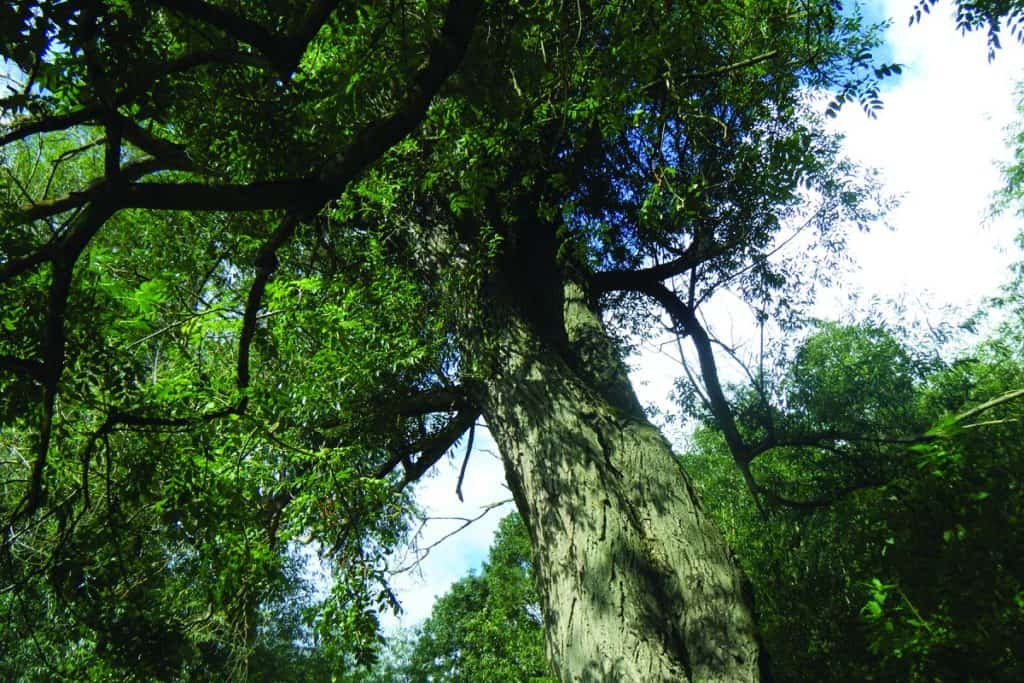Field Studies Council awarded grant to boost green jobs and nature recovery.
Field Studies Council has been awarded a grant from the Government’s £40 million second round of the Green Recovery Challenge Fund, a multi-million pound boost for green jobs and nature recovery.
Field Studies Council will deliver community training and resources as part of a £1.2M project secured by Trees for Cities to increase tree cover in smaller coastal cities and towns with low tree canopy cover and high levels of socio-economic deprivation.
Trees for Cities will work with project partners to deliver community tree planting events designed to revitalise forgotten coastal urban areas, including celebration of the Queen’s Jubilee.

Despite investment in tree planting, many places, especially coastal locations, have been overlooked and risk being further left behind. Whilst the levelling-up agenda focuses on the north/south economic divide, coastal communities up and down the country are in dire need of a boost to resources to kick-start a new green economy.
Through its part of the award, Field Studies Council will engage 5,600 people in seven coastal urban areas: Bexhill on Sea, Brighton & Hove, Great Yarmouth, Hull, Portsmouth, Ramsgate and Stockton. Field Studies Council will work with youth clubs, colleges and community groups to reach people aged 16-24 and those with less experience studying trees.
Field Studies Council’s Eco-Business Director, Philip Turvil said: “Field Studies Council is thrilled to be awarded this funding through the Green Recovery Challenge Fund with Trees for Cities to inspire a new generation to plant and protect urban trees. Field Studies Council will work with communities and experts to co-design easy-access learning to grow knowledge and confidence for people to study and enjoy urban trees.”
Field Studies Council will be looking for 5,000 people to receive weather-proof field guides three times during 2022 and 600 people to attend training days in community venues and online. Training and guides will be free for communities and link with Field Studies Council’s renowned learning experiences to protect biodiversity and tackle climate change.
David Elliott, Chief Executive of Trees for Cities, said: “We know that planting trees in cities has a hugely positive impact on people and our environment and that there is a strong correlation between low canopy cover and social deprivation. This funding will help us and our partners work together with local communities to provide green jobs and cultivate lasting change in neighbourhoods and coastal communities for generations to come.”
In total, ninety nature projects across England have been awarded grants from £68,100 to £1,950,000 to create and retain over 2,500 green jobs, backed by the Government’s £80 million Green Recovery Challenge Fund.
The Green Recovery Challenge Fund is a key part of the Prime Minister’s 10 Point Plan to kick-start nature recovery and tackle climate change. Connecting people with nature is another priority theme: by increasing access to nature and greenspaces, projects will support both physical and mental wellbeing.
The Government’s Green Recovery Challenge Fund was developed by Defra and its Arm’s-Length Bodies. The fund is being delivered by The National Lottery Heritage Fund in partnership with Natural England, the Environment Agency and Forestry Commission.
Environment Minister, Rebecca Pow, said: “The diverse and ambitious projects being awarded funding today will help environmental organisations employ more people to work on tree-planting, nature restoration and crucially, help more of the public to access and enjoy the outdoors.
“Through our £80 million Fund, we are on track to support over 2,500 jobs, plant almost a million trees and increase nature recovery at a huge scale across the country, which will help us deliver against our 25 Year Environment Plan.”
Ros Kerslake, Chief Executive, National Lottery Heritage Fund, said: “From wetland restoration, to creating wildlife-rich habitat for bees, it is vital that we value, protect and rebuild our natural heritage. This new funding will not only allow projects to carry out direct conservation, which is essential in protecting our biodiversity, but it will increase awareness of how and why we need to change our behaviours in order to protect our future.”
Emma Howard Boyd, Chair of the Environment Agency, said: “By supporting jobs from Northumberland to Somerset, the Green Recovery Challenge Fund will help deliver a nature positive future. The fund supports young people to develop skills needed to protect nature, build back greener and prepare for climate impacts, like floods and heatwaves.”
Natural England Chair, Tony Juniper, said: “Our environmental and conservation charity sector does an incredible job in protecting, improving and restoring the natural environment for the benefit of communities and the economy.”
Forestry Commission Chair, Sir William Worsley, said: “This funding will help deliver thousands more trees and help us achieve our target of trebling tree planting rates in England by the end of the Parliament. We need to work towards net zero emissions by 2050; to address biodiversity loss; to better connect people with nature; and to create more green jobs in doing so. Trees are central to this and the projects being awarded these grants will have a hugely important role in helping us realise these objectives.”

